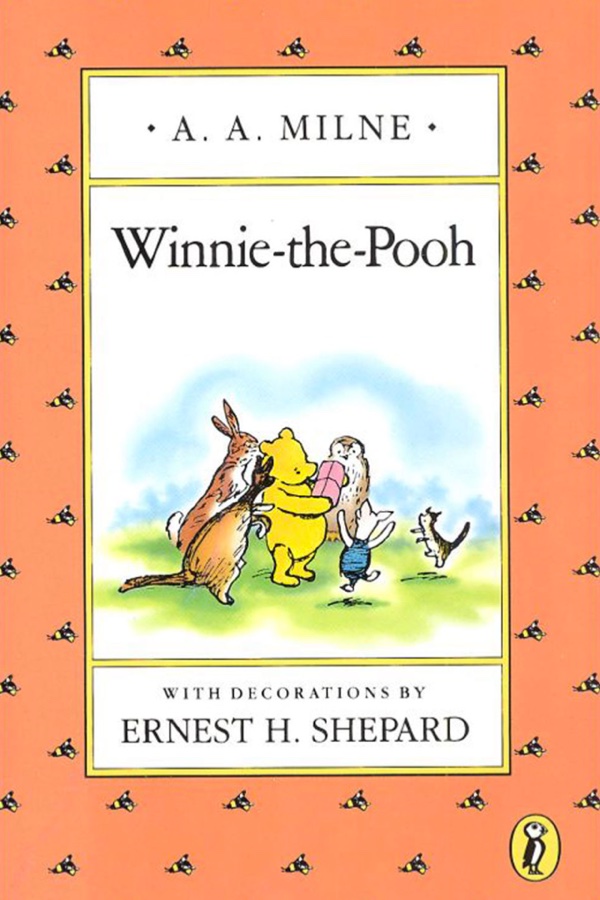Surely boys need books with action, battles, stimulating plot twists to capture their attention— yet Winnie-the-Pooh has none. The story rambles along, just like its protagonist, poking its head here and there with a sort of quiet wonder in its eye, then shuffles back home again. My students cannot get enough of it. They beg to read another chapter when we have finished the first, they clamor to discuss their favorite characters and episodes. One of the most popular writing assignments of the year was a competition in which they composed and read their own Pooh stories in front of the class, complete with dramatic voices and gestures.
Winnie-the-Pooh is not a collection of stories for children, it is a book to be read with children, to be experienced, to return to and keep returning to. At its heart is a brilliant and compelling celebration of the spirit of play, which lies more or less dormant in us all, and is ever present to the minds and imaginations of young boys. For them the stories carry a sort of liberation; in the Hundred Acre Wood it is okay to have no plans, to wander about and create adventures or misadventures that don’t amount to much of anything. Pooh and the others are merely happy to be alive in a world far bigger and grander than themselves, so long as they are walking in the company of good friends.
Once during a story a student clutched his head and called out, “Pooh is so stupid!”, at which point another student immediately turned and corrected him, “No, Pooh is not stupid, he’s simple-minded.” He said these last words with almost reverent affection, as if praising a dear friend. The boys don’t laugh at Pooh, but rather with him. While they joke about his questionable reasoning in solving problems, they also appreciate his effort and sincerity. They realize that this is Pooh, for better or for worse, and they embrace his virtues along with all his silly shortcomings.
A. A. Milne was a playwright by profession, his characters live through their speech. The stories are written to be read out loud. From the meandering thoughts of Pooh to the worries of Piglet, from the gentle laughter of Christopher Robinson to the inflated pretentiousness of Owl, the dialogue flows with a constant charm that delights both audience and reader alike. Miniature drama in each adventure becomes exciting, plays with hints of danger, and then revels in the joys of exploration without the compulsion to actually get anything done. The stories are well-paced and perfect for reading in one sitting.
Forget the cartoon images of the obtuse teddy bear with the dopey voice. If there is a copy of Winnie-the-Pooh in your home, take it off the shelf and read it tonight, out loud. If there is no copy in your home, find the collection of all the stories and the gorgeous color illustrations. Read the stories with your children. Live them with your children. Thank me later.
Study Questions
- Do any of the characters in the Hundred Acre Wood remind you of a family member or friend? Why?
- Do you think Pooh and his friends (besides Christopher Robin) will ever ‘grow up’? Why or why not?
- Go for a walk or stroll around your neighborhood or nearby park, or even your backyard, calling it a ‘Pooh’ adventure- see what you might explore!



